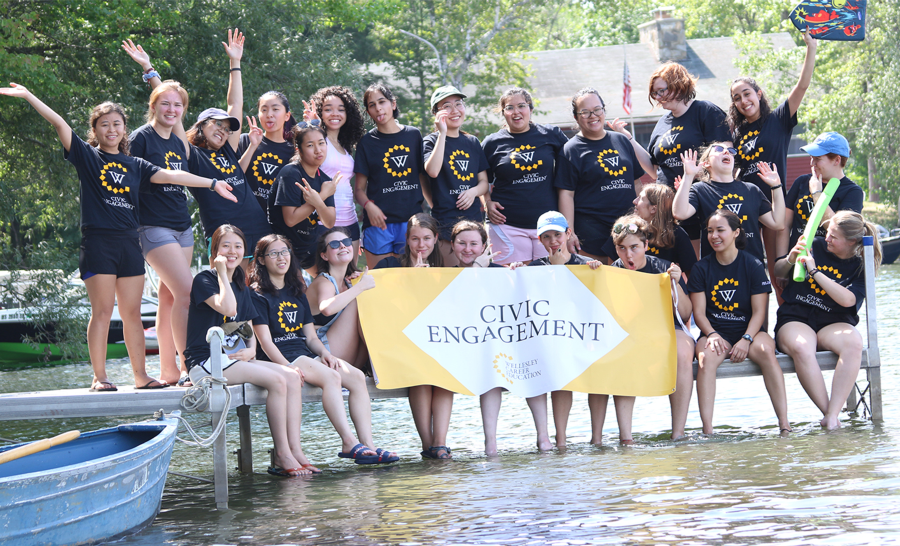On Worthiness, Knowledge Curation, and Diversifying OER
This project takes a crowdsourcing approach to diversify OpenStax Psychology (OpenStax College, 2014), an Open Educational Resource (OER) for Introductory Psychology courses.
FirstGen Forward / August 09, 2022

The beginning of the new academic year provides numerous opportunities to #AdvocateFirstgen. One approach is for higher education professionals to promote civic engagement among first-generation students.
Civic engagement has many definitions and can encompass a range of activities. The American Psychological Association defines civic engagement as “individual and collective actions designed to identify and address issues of public concern.” Civic engagement can broadly include a range of actions such as individual volunteer work, group-based involvement in community issues, or engagement in advocacy or election-related activities.
Research demonstrates that first-generation college students find an increased sense of connection through involvement in civic engagement activities. (Checkoway, 2014). First-generation students have an interest in giving back and engaging in civic activities, although work and family commitments can make actualizing this interest more difficult (Ling Yeh, 2010). Conley and colleagues (2009) state that “any attempt to foster social awareness and commitment must first critically engage these students in an examination of power, privilege, and difference.”
Creating space for non-partisan organizations such as Campus Vote Project or Rock the Vote is another approach to promoting first-generation students’ civic engagement.
Thus, faculty are presented with opportunities to enhance service learning courses for first-generation students. Owen and colleagues (2019) have found that “embedding civic engagement opportunities in coursework through community-based learning and intentional reflection about that learning can help promote [first-generation] students’ civic identity development.”
tabling or staffing a booth at resource or organization fairs;
encouraging first-generation student organizations to create a group-based project or engage in other forms of self-advocacy;
communicating the existence of an office or centralized information center about individual volunteer activities; and
making available information about adjacent community resources.
First-generation students have an interest in giving back and engaging in civic activities, although work and family commitments can make actualizing this interest more difficult.
In addition, institutions can support efforts that specifically promote engagement in the political process. Creating space for non-partisan organizations such as Campus Vote Project or Rock the Vote is another approach to promoting first-generation students’ civic engagement. The Institute for Democracy & Higher Education released a report on student voter participation taken from the results of its National Study of Learning, Voting, and Engagement. The report, Democracy Counts 2020: Record-Breaking Turnout and Student Resiliency, showed voting by a variety of college student demographics increasing from 52% in 2016 to 66% in 2020.
Thus, advocacy-related activities that promote self-advocacy and civic engagement in issues relevant to first-generation students can take many forms. Promoting awareness of the opportunities aligns well with activities that take place on campuses at the beginning of the semester such as weeks of welcome, organization fairs, or resource fairs. In sum, encouraging first-generation students to become civically engaged is another highly effective way to #AdvocateFirstgen
What strategies have helped you to champion first-generation students successfully? Share your perspective on first-generation student advocacy and pertinent policy issues across social media with #AdvocateFirstgen.
Checkoway, B. (2011). New perspectives on civic engagement and psychosocial well-being. Liberal Education, 97, 6–11.
Conley, P., & Hamlin, L. (2009). Justice-learning: Exploring the efficacy with low-income first-generation college students. Michigan Journal of Community Service Learning, 16, 47–58.
Ling Yeh, T. (2010). Service-learning and persistence of low-income, first-generation college students: An exploratory study. Michigan Journal of Community Service Learning, 16(2), 50–65.
Owen, J.E., Kress, M., McCarron, G. (2019). An Exploration of Civic Identity in First-Generation College Students: From Charity to Solidarity, Journal of Student Affairs Research and Practice, 56(3), 535-549.